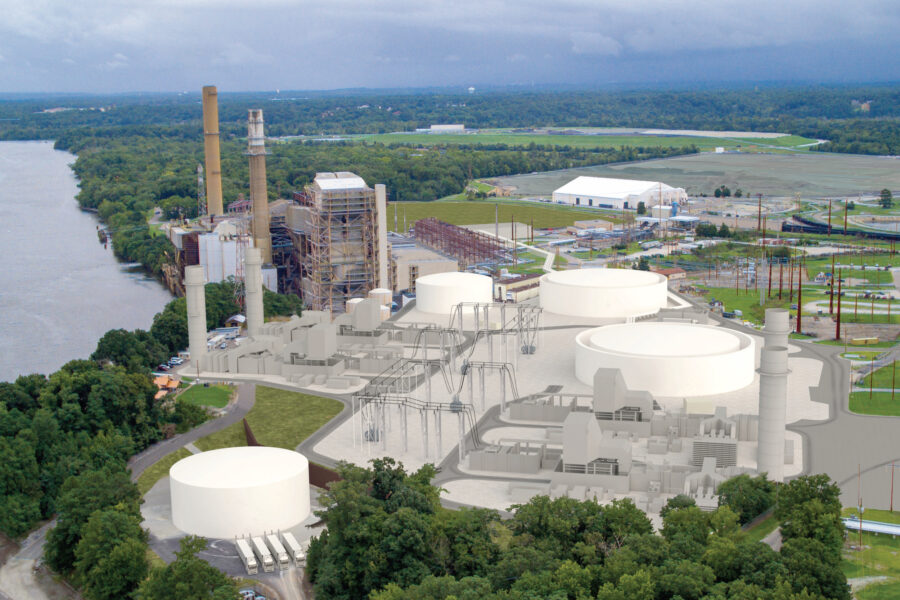A number of leading environmental organizations filed a legal notice with the Environmental Protection Agency Wednesday demanding that the agency stop what they say is improper disposal of drilling and fracking waste by oil and gas companies.
“We’re asking that EPA finally do what it found to be necessary back in 1988: update the regulations for oil and gas wastes,” Adam Kron, attorney at the Environmental Integrity Project (EIP), said in a statement. “The oil and gas industry has grown rapidly since then, and yet EPA has repeatedly shirked its duties for nearly three decades. The public deserves better protection than this.”
The groups filing the notice letter include EIP, Natural Resources Defense Council (NRDC), Earthworks, Responsible Drilling Alliance, San Juan Citizens Alliance, West Virginia Surface Owners Rights Organization, and the Center for Health, Environment and Justice. The groups are calling on the EPA to update waste disposal rules that they say should have been revised more than a quarter-century ago.
Specifically, the coalition is calling for stricter controls for underground injection wells, which pump billions of gallons of oil and gas wastewater deep underground and have been linked to earthquakes in Ohio, Oklahoma, and Texas. The coalition is also calling on the EPA to ban the practice of dumping wastewater from fracking on roads and fields. It also wants to require landfills and ponds that receive drilling and fracking waste to be built with adequate measures to prevent spills and leaks into groundwater and streams.
Waste from oil and gas production poses a growing environmental concern as the industry’s ongoing fracking boom has produced a vast amount of solid and liquid waste. Each well produces millions of gallons of wastewater and hundreds of tons of drill cuttings, which often contain known carcinogens such as benzene, toxic metals such as mercury, and radioactive materials according to a statement by the Environmental Integrity Project.

Much of this waste, however, has been exempt from federal hazardous-waste laws since 1988 when oil and gas companies successfully lobbied Congress and the EPA for changes that leave waste disposal virtually unregulated.
“The scary truth is that right now this waste—complete with carcinogens and radioactive material—is being dumped irresponsibly or disposed of like everyday household garbage,” Matthew McFeeley, an attorney at NRDC, said in a statement. “Toxic waste should not be sent to run-of-the-mill landfills, sprayed on our roads and fields, or stored in open air pits.”
An investigation published last year by InsideClimate News found that in most states where fracking is taking place, air emissions from oil-and-gas waste are among the least regulated, least monitored and least understood components in the extraction-and-
In June, the EPA published a draft assessment of the potential impacts of hydraulic fracturing on drinking water that environmentalists say shows the technique causes contamination. “The EPA identified a couple of studies in that paper where benzene levels and barium levels in the waste, the produced water or the flowback, exceeded the statutory threshold for what would be hazardous waste,” said Aaron Mintzes of Earthworks. “Scientifically speaking by any measure we are dealing with in some cases hazardous material but because of loopholes they are not treated that way by the EPA.”
In the absence of federal regulation, states are left to determine how to classify oil and gas waste. Most use federal classifications that do not consider it hazardous, with the exception of California which classifies some of the waste—if it’s ignitable or corrosive—as hazardous, Mintzes said.
“They have partially closed this hazardous waste loophole in the state of California,” he said. “Everywhere else, Colorado, Ohio Texas, Pennsylvania, a number of major areas [all have] problems both in their rules and the enforcement thereof.”
The environmental coalition cites numerous examples from across the country of problems caused by what they say is the improper disposal and handling of fracking and drilling waste. They say wastewater from oil and gas production that contained high levels of potentially hazardous ammonium and iodide has been dumped or spilled in rivers in West Virginia and Pennsylvania. The claim is based on a 2014 study by researchers at Duke University.
They cite another example in May 2012 when an industrial pond holding six million gallons of fracking wastewater in Pennsylvania leaked pollutants including arsenic and strontium.
“Improper handling of drilling waste threatens the health and safety of 3.5 million Pennsylvania residents whose drinking water comes from private wells,” Barbara Jarmoska of a Pennsylvania nonprofit, the Responsible Drilling Alliance, said in a statement.
The link between earthquakes and injection wells is coming under increasing scrutiny in Texas where there are 7,500 injection wells, each of which pump an average of 2.8 million gallons of wastewater underground each year according to Adam Kron of the Environmental Integrity Project.
In June, regulators held a hearing on whether the activity of two companies contributed to earthquakes near their operations. A final determination is still pending from the Railroad Commission of Texas (RCT), the agency that regulates oil and gas operations in the state. RCT spokesperson Ramona Nye said the state has adopted some of the strongest rules on seismic activity in the nation.
Todd Staples, president of the Texas Oil & Gas Association, an industry trade group based in Austin, said the RCT strictly regulates the disposal of fracking and drilling waste in the state.
“Injection wells are required by Texas law to be constructed with multiple layers of steel and concrete to protect water supplies; by law, pressure in these wells is regularly monitored,” Staples said in a statement. “Before a permit is issued by the Railroad Commission, operators of surface facilities and injection wells in Texas must demonstrate that operations will protect the environment, including surface and groundwater.”
The environmental groups notified the EPA that they will file a lawsuit in 60 days unless the agency complies with what they say is its duty under the Resource Conservation and Recovery Act to review and revise the federal regulations governing how oil and gas waste must be handled and disposed.
If the EPA does not act within 60 days, the group said it intends to ask a federal court to set strict deadlines for the EPA to update its regulations.
EPA deputy press secretary Laura Allen said the agency will review the environmental groups’ notice of intent and any related information submitted to the agency.
About This Story
Perhaps you noticed: This story, like all the news we publish, is free to read. That’s because Inside Climate News is a 501c3 nonprofit organization. We do not charge a subscription fee, lock our news behind a paywall, or clutter our website with ads. We make our news on climate and the environment freely available to you and anyone who wants it.
That’s not all. We also share our news for free with scores of other media organizations around the country. Many of them can’t afford to do environmental journalism of their own. We’ve built bureaus from coast to coast to report local stories, collaborate with local newsrooms and co-publish articles so that this vital work is shared as widely as possible.
Two of us launched ICN in 2007. Six years later we earned a Pulitzer Prize for National Reporting, and now we run the oldest and largest dedicated climate newsroom in the nation. We tell the story in all its complexity. We hold polluters accountable. We expose environmental injustice. We debunk misinformation. We scrutinize solutions and inspire action.
Donations from readers like you fund every aspect of what we do. If you don’t already, will you support our ongoing work, our reporting on the biggest crisis facing our planet, and help us reach even more readers in more places?
Please take a moment to make a tax-deductible donation. Every one of them makes a difference.
Thank you,











